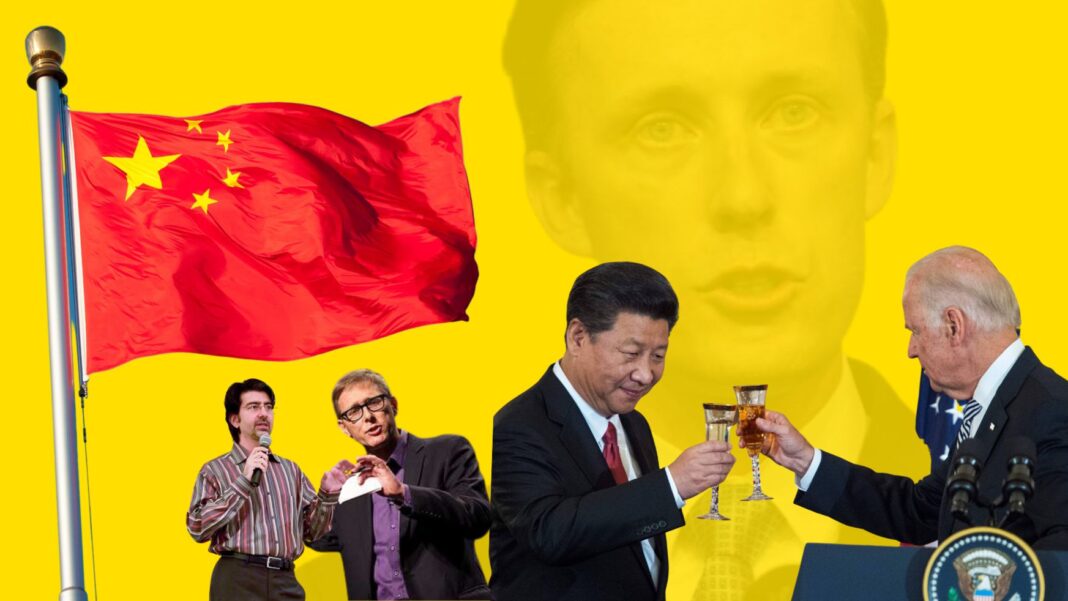Several recent articles in the American press have labeled Taiwan the most likely place for a China-U.S. nuclear war to break out and have called for Washington to avoid such a catastrophe by withdrawing its forces from the area and making no commitments to defending Taiwan.
This advice follows in the wake of some recent “war games” in which U.S. officials divide themselves into China and America teams and pursue in the context of a “game” the strategies they believe both sides would adopt. According to various reports, the American side has been mostly losing in these games. In view of that, some analysts have concluded that the United States should recognize the hard reality of the situation and simply avoid any conflict with China by withdrawing from any apparent position to defend Taiwan in the event of an invasion of it by the People’s Liberation Army (PLA). In giving this advice, they emphasize that such a move would in no way undermine the trust of U.S. treaty allies—Japan, South Korea, the Philippines, and Australia—in America’s commitments to defending them.
This argument is nothing but errant nonsense and anyone making it is either a fool or an agent of China. Put yourself in the position of, say, Japan or South Korea. The United States says an attack on you is the same as an attack on it and that it will come to defend you. But the United States has clearly acted to defend Taiwan in the past. President Clinton sent two aircraft carrier battle groups into the Taiwan Straits to send a message to Beijing in the late 1990s. So if suddenly now that China’s military capacity has grown and the United States withdraws from any position to defend Taiwan, the message to treaty allies will be very clear. Without saying a word, they will conclude that Washington cannot be relied upon and will rush to make whatever deals they can get with Beijing. Weak kneed allies are not dependable allies.
Far from withdrawing, America needs to strengthen its own position in the waters near Taiwan while also calling for further support and commitments from not only its treaty allies—Japan, South Korea, the Philippines, and Australia—but also from others like Vietnam, Malaysia, Indonesia, and India who are also being threatened by China with its seizure of some of the islands claimed by them and with its harassing of their fishermen and shipping. In other words, rather than running away, Washington needs to gather and strengthen more allies so that the strength of the free world forces will equal or better that of the potential Chinese forces.
The objective must be to prevent the PLA from gaining a foothold on Taiwan and drive it back into the sea if it is able to temporarily establish some occupation zone. Neither the United States nor any of its allies should do anything to trigger a PLA invasion. The first to start shooting will be held responsible for whatever happens. Let that be China. Its aggression would reinforce the dedication to resist on the part of Taiwan and the allies.
Nor should there be any escalation of fighting beyond the South China Sea, Southeast Asia region. However, more countries like France (remember that a whole Department of France is in the South Pacific), Germany, Canada, and the UK might decide to lend support.
Some analysts argue that American involvement in any armed conflict with China could easily mushroom into a full-scale nuclear war. But the potential destructiveness of such a war militates against it on the part of both sides. The Cuban missile crisis of the early 1960s did not mushroom into nuclear war. The United States and the Soviet Union managed to carry on a Cold War for 43 years without getting into a nuclear confrontation. The very awfulness of such a battle militates against it.
Rather, what is more likely to occur is that more countries would be drawn into the conflict on the allied side, particularly if China moved to broaden the war beyond Taiwan. But such broadening would be a tacit admission of defeat in Taiwan. The chances are good that such a defeat would result at a minimum in the fall of Xi Jinping as China’s maximum leader. Indeed, it is even possible that the Chinese Communist Party itself would become a victim of its own rash decision to settle by armed conflict what should have been decided by debate and negotiation.
By thus overreaching the Chinese Communist Party might sound its own death knell.






